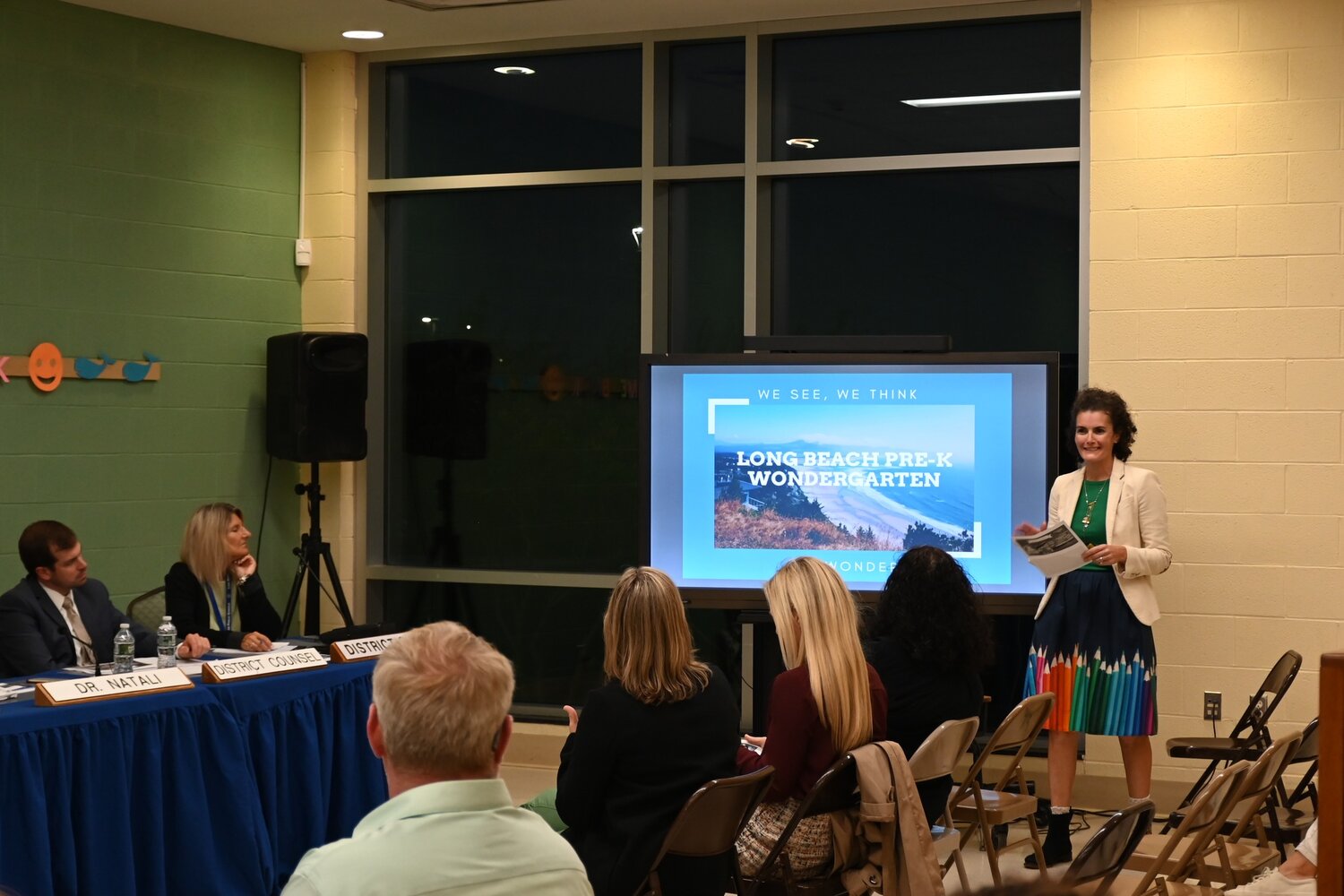New Pre-K program is introduced
A fresh approach to early education was announced at the Sept. 26 Board of Education meeting, unveiling Lido Elementary’s new full-day Pre-Kindergarten program.
The program, Wondergarten, was explained through a presentation by Pre-K teacher Molly Drake.
“Wondergarten is an inquiry-themed, center-based program that integrates basic literacy and numeracy, opportunities for inquiry, and nature-based exploration using free play and choice,” Drake said at the meeting.
In an era where standardized testing often takes precedence, programs like Wondergarten are a breath of fresh air, emphasizing the importance of fostering creativity and critical thinking from an early age.
Inquiry-based learning, or child-led investigations, makes use of four major types — structured, confirmation, guided and open.
Structured inquiry offers children a question and a method to find an answer. Confirmation inquiry provides the question, its answer, and the investigation method, asking children to understand the process.
Guided inquiry presents a question and lets children, usually in groups, devise their investigation methods. Open inquiry, the least structured, lets children create both their question and investigation method.
The program plans to collaborate with local facilities such as the Long Beach Fire Department, Long Beach Public Library, Long Island Children’s Museum, and Jones Beach Nature Center.
“We’re hoping to use our full day to take the children to the beach, and these places with all these wonderful resources,” Drake said. “Part of our curriculum happens to be the coral reef, so how lucky are we that we have that here.”
Through Wondergarten, the “see-think-wonder” methodology takes center stage. Drawing inspiration from the natural world, this approach offers young learners opportunities to showcase their creativity, imagination, and curiosity, creating a solid foundation for a successful learning journey.
Drake emphasizes the importance of individualized support for children based on where they are in their learning and development. Instead of using a one-size-fits-all approach.
At the beginning of a school year, some students might need more attention or different types of resources. But as the year progresses, these students might grow in their skills and become more confident.
By continuously adapting and adjusting the teaching techniques, educators can ensure they’re always meeting the current needs of their students, making the learning experience more effective and meaningful for each child.
“It’s the children who are leading this, this learning instead of us kind of dictating what is happening,” Drake said. “They’re really going where they want to go with it.”

 44.0°,
Mostly Cloudy
44.0°,
Mostly Cloudy 




